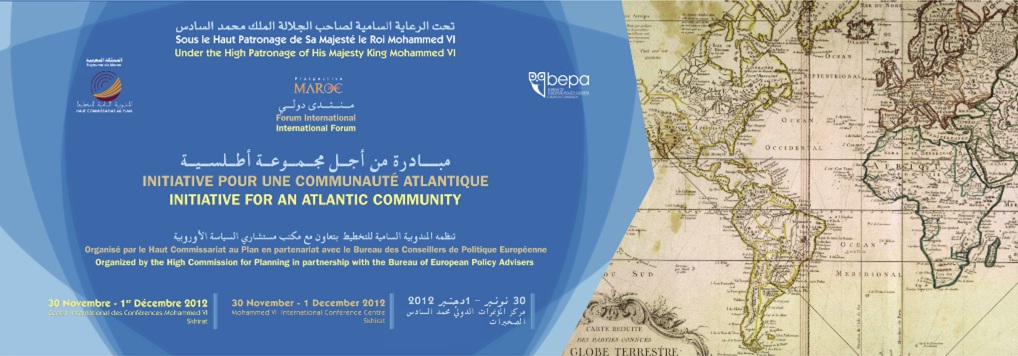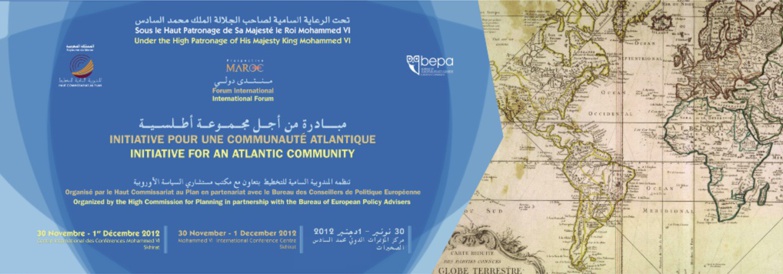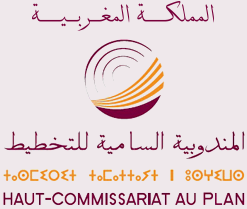- Le caractère systémique de la crise économique est illustré davantage par la crise des dettes souveraines dans la zone euro. Celle-ci hypothèque désormais les perspectives de relance de la croissance aussi bien au niveau des membres de l’Union Européenne que de ses voisins.
- Il est prématuré d’évaluer les changements politiques intervenus sur la rive sud de la Méditerranée, tant dans leur soutenabilité institutionnelle que dans leur capacité à apporter les solutions idoines aux besoins en développement humain des populations concernées.
- Les doutes exprimés par certains grands acteurs, quant à la pertinence d’une démarche atlantique collective, se muent progressivement en un intérêt qu’il convient de transformer en contributions effectives aux réflexions et actions en cours.
La dégradation de la situation sécuritaire au Sahel interpelle les acteurs de l’Espace Atlantique comme ceux du Bassin méditerranéen Occidental pour des mesures concertées sur la base d’une responsabilité collective.
- Les axes identifiés en 2009 demeurent prioritaires qu’il s’agisse de la sécurité alimentaire ou énergétique, de la mobilité humaine ou du partage de la connaissance. Ces priorités stratégiques devraient tenir compte des travaux internationaux en cours sur les tendances globales 2030 de manière à associer plus d’acteurs atlantiques à leur identification et à leur appropriation collective.
A cet égard, il apparait que les dynamiques portées par les clusters maritimes sont porteuses d’innovation et de créativité dans l’Espace Atlantique, ouvrant la voie à une approche « De la Mer vers la Terre » plutôt que de la terre vers la mer.
2. Nous déclarons qu’une Communauté Atlantique serait le cadre idéal pour une gouvernance nouvelle qui associe les acteurs non-gouvernementaux notamment l’entreprise, la société civile, en particulier les associations des femmes et des jeunes, à la formulation et à la mise en œuvre de politiques concertées dans les axes prioritaires proposés. Ces politiques doivent être conçues dans le contexte d’une approche qui remet l’Homme au centre des préoccupations communes et qui revisite les paradigmes du développement.
3. Cette gouvernance collective nouvelle ne doit aucunement se fonder sur de nouvelles institutions qui viendraient renforcer les bureaucraties multilatérales, mais :
- recourir à des méthodes de collaboration et de partenariat en densifiant la surveillance mutuelle des politiques ainsi que la planification et l’évaluation stratégiques.
- renforcer le contrôle démocratique des politiques communes à travers l’implication des Parlements et une plus grande participation des collectivités territoriales. Dans ce cadre, le respect de la diversité culturelle renforce les liens de proximité et le sentiment d’appartenance à une Communauté Atlantique.
Pour donner à cette gouvernance un contenu plus concret, nous proposons :
i. L’implication des Banques Centrales de l’Espace Atlantique réunies à l’occasion des assemblées du FMI et de la Banque Mondiale. Ces conclaves devraient faciliter la prise de décisions à l’échelon mondial en vue de la relance de la croissance sur la base d’un renforcement de l’interdépendance et de la responsabilité partagée.
ii. La création de groupes atlantiques de concertation et de consultations informelles :
a. au sein des organismes de l’ONU et notamment la FAO, le PAM, le FIDA, en ce qui concerne la sécurité alimentaire.
b. avec les Banques régionales de Développement et institutions similaires opérant dans l’Espace Atlantique.
iii. La réunion d’une Conférence sur la sécurité énergétique dans le prolongement de RIO + 20.
iv. La mise en place d’un mécanisme de concertation multilatérale pour une appropriation collective de l’économie de la connaissance, basée sur les principes de l’objectif 2020 de la Commission Européenne.
v. La convocation d’une conférence sur la sécurité humaine dans l’Espace Atlantique pour remédier aux vulnérabilités collectives de basse intensité et créer un cadre de coresponsabilité.
4. La feuille de route suivante permettra une programmation efficace des initiatives pour les deux prochaines années, focalisées sur :
- La création de réseaux atlantiques de jeunes entrepreneurs, d’historiens et d’économistes,
- L’économie maritime, l’énergie, l’alimentation-agriculture et la sécurité.
5. Les progrès réalisés dans la mise en œuvre de ces initiatives seront évalués lors de la tenue de la Conférence Skhirat III en 2014
6. Nous félicitons le Maroc d’avoir accepté et pourvu à l’activation d’une structure de suivi de « l’Initiative pour une Communauté Atlantique » dans le cadre d’un partenariat avec le BEPA, et confirmons l’importance qui s’attache à collaborer avec ce point focal mis en place au sein du HCP
7. Nous tenons à exprimer notre gratitude à Sa Majesté le Roi Mohammed VI pour Son Haut Patronage et nos remerciements au HCP pour la qualité de l’organisation du deuxième Forum International, une fois de plus marquée par l’hospitalité du peuple marocain.
Skhirat, 1er Décembre 2012.
Télécharger
Version anglaise-------------------------------------------------------------
We, the participants at the Second Forum of Skhirat (November 30 to December 1 , 2012) gathered together to reflect collectively on the Initiative for an Atlantic Community, reiterate the analysis and conclusions of the Skhirat Call of May 30, 2009, adopted within the framework of Vision “Morocco 2030”.
1. We confirm the following:
- The systemic nature of the economic crisis is compounded by the sovereign-debt crisis of the euro zone which is now dampening the prospects of an upturn in economic growth in the member states of the European Union and in neighbouring countries.
- It is too early to assess the political changes that have occurred on the southern shores of the Mediterranean Sea as regards both their institutional sustainability and their ability to provide the appropriate solutions to respond to the human development needs of the populations involved.
- The doubts raised by some of the key players as regards the relevance of a common Atlantic approach are gradually turning into an interest which needs to be transformed into effective contributions towards realising the reflections and actions in train. The deteriorating security situation in the Sahel calls on players in both the Atlantic space and the western Mediterranean Basin to take concerted actions based on collective responsibility.
- The issues identified in 2009, whether those relating to food security, energy security, the movement of people and knowledge-sharing, will continue to be top priorities. These strategic priorities should take account of the ongoing international work currently taking place on Global Trends 2030 at the national and international levels to involve more Atlantic players in their identification and their collective ownership. In this regard, it appears that the dynamics fuelled by maritime clusters are key drivers for innovation and creativity within the Atlantic space, paving the way for a “from sea to land” approach rather than for a “from land to sea” approach.
2. We declare that an “Atlantic community “would be the ideal framework for a new form of governance that brings together non-governmental actors , including business and civil society organisations , and in particular, women and youth associations into the formulation and implementation of concerted policies under the priority themes proposed. These policies must be designed within the framework of an approach that places humankind at the centre of common concerns and revisits development models.
3. This new collective governance must in no way be built on new institutions which are likely to strengthen multilateral bureaucracies; instead it should :
- have recourse to methods of collaboration and partnership by diversifying the mutual oversight of policies as well as strategic planning and evaluation;
- reinforce democratic control of common policies through the involvement of parliaments and the greater participation of local governments. In this connection, respect for cultural diversity enhances ties of proximity and sense of belonging to an Atlantic community.
- in order to give further concrete substance to this governance, we recommend :
i. the engagement of the Central Banks of the Atlantic space gathered during meetings of the International Monetary Fund and the World Bank. These meetings should facilitate decision-making at the global level with a view to relaunching economic growth through reinforcing interdependence and shared responsibility;
ii. the creation of Atlantic focus and informal consultation groups :
1. within the United Nations’bodies , especially the FAO, WFP and IFAD as regards food security;
2. with regional development banks and similar institutions operating in the Atlantic space;
iii. Convening an energy security conference as a follow-up to Rio +20;
iv. Establishing a multilateral consultation mechanism for the collective ownership of the knowledge economy, based on the principles governing the European Commission’s 2020 objective;
v. Convening a conference on human security in the Atlantic space to address collective low-intensity vulnerabilities and to create a framework of co-responsibility ;
4. The following road map will allow for an efficient programme of initiatives for the next two years focusing on:
- the creation of Atlantic networks of young entrepreneurs, historians and economists;
- maritime economy, energy, food and agriculture and security.
5. The progress achieved in the implementation of these initiatives shall be evaluated during the Skhirat Forum III in 2014.
6. We commend Morocco for having accepted to set into motion a monitoring structure of the Initiative for an Atlantic Community within the framework of a partnership with BEPA and we confirm the importance attached to this focal point set up within the High Commission of Planning.
7. We would like to express our gratitude to His Majesty King Mohammed VI for His Royal Patronage and our thanks to the High Commission of Planning for the high quality of the organisation of the Second Internal Forum, which was once again imbued with the hospitality of the Moroccan people.
Skhirat, Morocco
On this day of the first of December, 2012.









